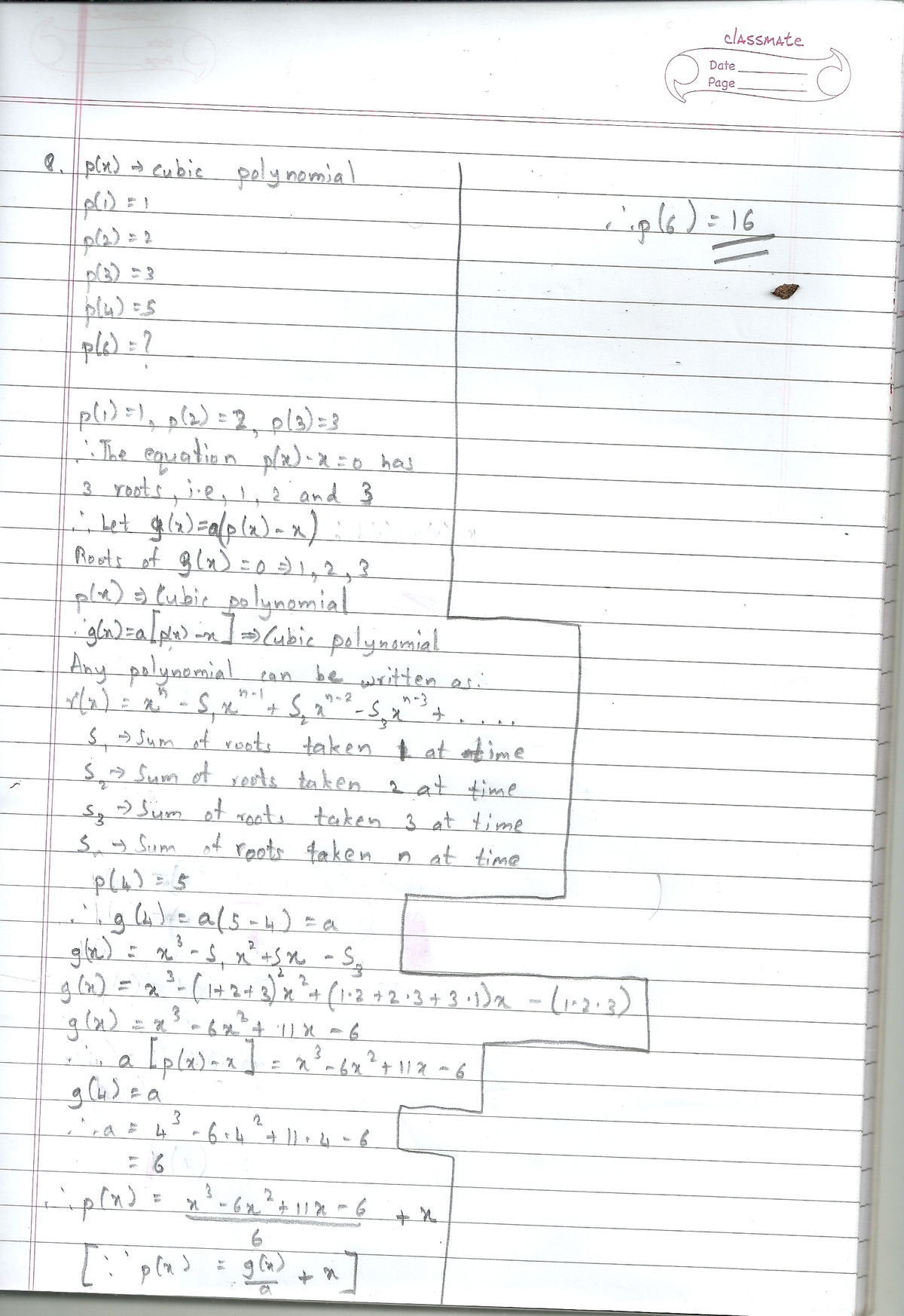poly poly nomial!!!!!
A cubic polynomial p ( x ) is such that p ( 1 ) = 1 , p ( 2 ) = 2 , p ( 3 ) = 3 , p ( 4 ) = 5 .Find the value of p ( 6 ) .
A polynomial of degree 3 is called a cubic polynomial.
The answer is 16.
This section requires Javascript.
You are seeing this because something didn't load right. We suggest you, (a) try
refreshing the page, (b) enabling javascript if it is disabled on your browser and,
finally, (c)
loading the
non-javascript version of this page
. We're sorry about the hassle.
2 solutions
Let a cubic Polynomial P ( x ) = a x 3 + b x 2 + c x + d Then On solving, a = 6 1 , b = − 1 , c = 6 1 7 , d = − 1 which gives, P ( 6 ) = 1 6 :)
Exactly,bro!:D
Dont you think that this is a very lengthy method?????? You will put all the conditions, and you will get 4 equations. Then you will have to solve 4 equations simultaneously to find the values of the 4 variables.There is an alternative...... p(1) = 1, p(2) = 2 and p(3) = 3. So, we know that there are 3 real roots of the equation p(x) - x = 0, and these roots are 1, 2 and 3. Since p(x) is a cubic polynomial, p(x) - x is also a cubic polynomial, and hence, it will not have any more roots. Now consider a polynomial g(x) = a[p(x) - x]. The roots of g(x) = 0 are also 1, 2 and 3. If you know all the roots of the equation, you can find the equation. Here, p(x) - x = x^3 - (Sum of roots) x^2 + (Sum of roots taken two at a time)x - (Product of roots). Hence, p(x) - x = x^3 - (1+2+3)x^2 + (1 * 2 + 2 * 3 + 3 * 1)x -(1 * 2 * 3). Hence, p(x) - x = x^3 - 6x^2 + 11x - 6. From g(x) = a[p(x) - x], we know that p(x) = x + (g(x)/a). Since p(4) = 5, we can find out the value of a. a comes out to be 6. Therefore, you can now easily find out p(6), which comes out to be 16. I know that at first sight, this method looks lengthy, but believe me, it is not. You can do this pretty fast!!!!!
See image below